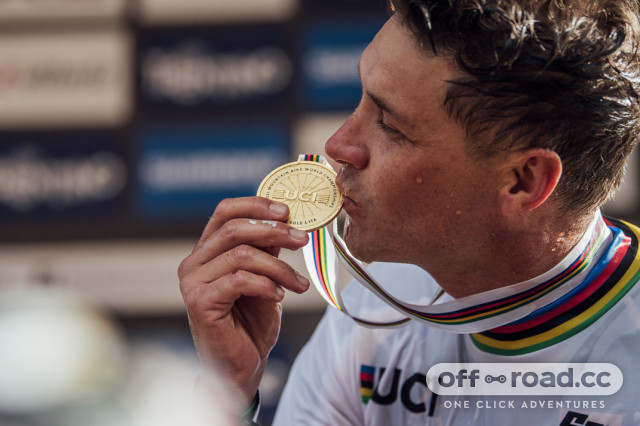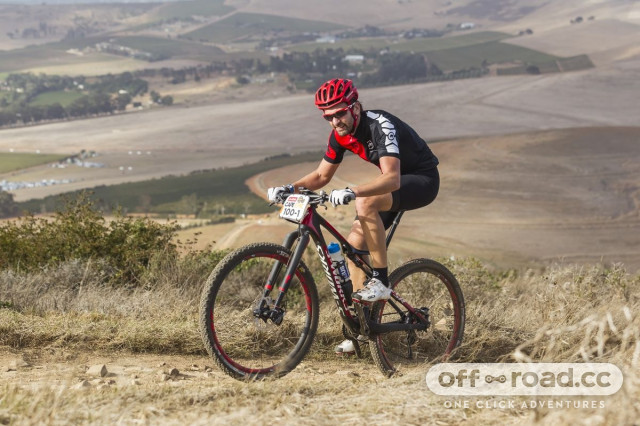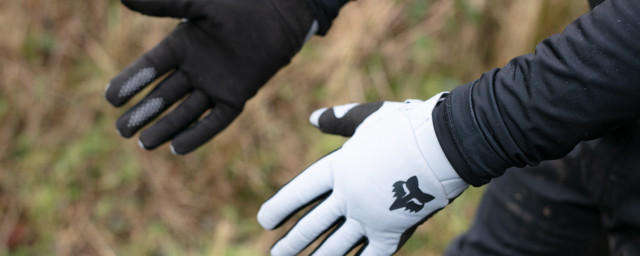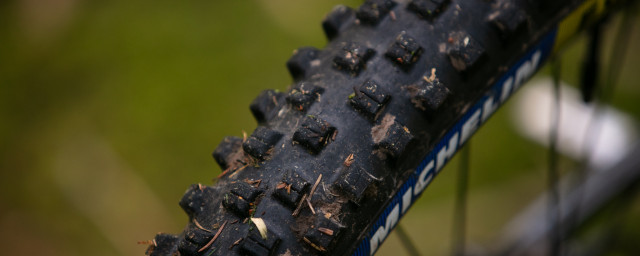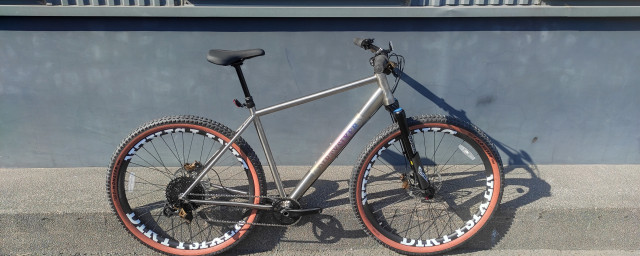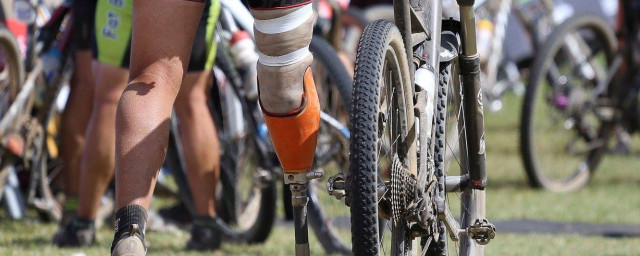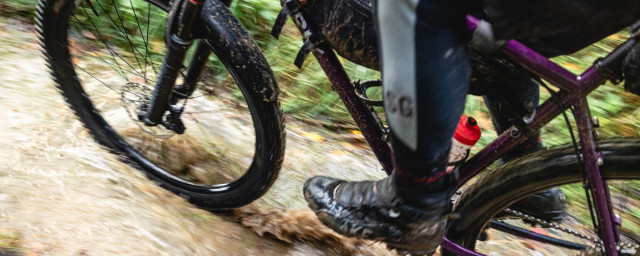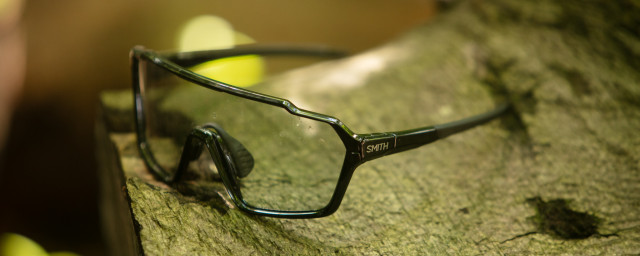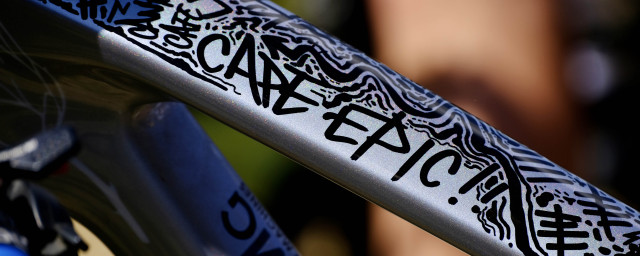20 years of the Cape Epic

[Words by Steve Thomas]
Medium rare? I had no idea how you should have your springbok served but, hey, when in South Africa it just had to be tried. Bemused, confused and amused, Liam Killeen, my roommate and soigneur Gary and I were taking a liking for these slightly naughty but extremely nice African dishes and, after supping a few glasses of the superb Cape red wines, we decided to head out to check out Knysna, where we were along for this curious brand-new mountain bike race that was about to happen – the 2004 Cape Epic.
- Cape Epic MTB Race 2024 - riders to watch
- Bike check: Vincenzo Nibali's Scott Spark
- Cross-country mountain biking: everything you need to know
Turn right at the first robot and go straight over the next one – that was our given directions. Still, in a travel-lagged state of confusion, we set off looking for robots and wondered if there was some kind of cult trend to Knysna that involved robots. Look as hard as we did, we just couldn’t find any robots. This was the pre-smartphone era – in fact, we still used analogue cameras and there were no apps on board to help us, so we asked a local, who pointed up at the traffic lights. Yep, traffic lights are called 'robots' in South Africa.
Fast forward a few blurry and bleary hours to the sunrise start of the first stage, and I was handed the keys to an overloaded VW minivan and told to be careful as it was the TV equipment for the race.
I can’t quite remember how I first heard about this new stage race through the wilds of South Africa but it sounded too good to miss. However, I didn’t hold much hope of such a thing happening, let alone happening more than once, after all, I had seen many similar projects fall fowl of hurdles over the years. Either way, somehow, I managed to wrangle my way there, with my main aim being to follow the then U23 World Cup Champion Liam Killeen and his assigned race teammate and Downhill World Champ Greg Minnaar, an odd couple to say the least, which made it all the more interesting.
Mapless, appless and hapless, my brief was just to follow the route, and when the road turned to dust, we were flagged off to the right. Minutes later this VW was tobogganing down a rutted and muddy singletrack while being lashed by the under and overgrowth. There was no braking, and the riders were passing through the bushes, while I was having kittens – I mean, what goes down must go up? Yes, you guessed it, a river crossing and a few riders pushing, and I could finally grin in relief, and that pretty much set the tone from my side for that first Cape Epic.
From being picked up at sunrise on a remote dirt road by a microlite to shoot the race, to being called out of breakfast for an unexpected helicopter shoot of the race, when I only had a point-and-shoot camera in hand, it was a race that would not forget easily, in a great way that is.
From the incredibly varied, wild and beautiful terrain that we passed through on the trail between Knysna (a pretty coastal town at the top end of the Garden Route), through the deserts of Little Karoo, to being chased by an ostrich, watching wild springbok from behind a beer in my tent, weaving through stunning mountain countryside and on to the elegant Spier wine estate in Stellenbosch, it was an amazing journey.
As for the race itself? A masterpiece of logistical and organisational prowess, one that in the wrong hands could have been a disaster. From the daily stripping and moving of an entire tented village and the accompanying infrastructure to providing some of the most amazing on-site support, to superb pre-planned daily race coverage, mountain biking had never seen anything else quite on this scale, at least not in terms of rolling from the place-to-place show, which it was originally.
That first race was most befittingly won by Mr African himself, the legendary Namibian MTB endurance racer Mannie Heymans and his teammate Karl Platt, who has since gone on to win the race five times and is considered an icon of this great race. The women’s race was won by South Africa’s Hanlie Booyens and Britain’s Sharon Laws, who tragically lost her life to cancer in 2017 aged just 43.
What, perhaps, impressed me the most in terms of the racing that year was the incredible ride of Greg Minnaar, a downhiller who fought his way through the race and finished (and did so again in 2008), and to the sportsmanship I saw close up while following the leading breakaway onto a tight stage finish when all three of the leading duos in the race took a physical helping hand in keeping Kenyan legend David Kinjah and his partner Davidson Kamau in contention for the lead, the leading black African riders.
The Founding Father of the Epic, Kevin Vermaak
Cape Town mountain biker Kevin Vermaak was working in IT in London when he signed up for the 2002 La Ruta MTB stage race in Costa Rica, then considered the world’s most prestigious offroad stage race. He was so impressed by the experience that he decided to create his own race back in South Africa, so he quit his job and went all in to make his dream race a reality and it worked, and the race became an instant hit and has just gone from strength to strength over the years – and has had a huge positive impact on all things African cycling.
Kevin sold the race to the Ironman group in 2015 (their first organisation was in 2016) and is no longer involved in the running of the Epic, We caught up with Kevin at his home in Switzerland this weekend for a few insights on how the race has evolved over the years,
ORCC: Do you feel the race has become too regimented; does it need a shakeup to prosper?
KV: The race has grown to where it is today because we had a dedicated team of utterly passionate folk who cared exclusively about making it better and more prestigious and ensuring the rider experience was enhanced every year. We wanted to offer an experience that was unrivalled and hence the annual innovation to achieve this. I think the race has indeed drifted from this focus and it’s only natural that the rider experience has suffered as a consequence.
It has a lot of momentum – riders from around the world plan their participation years and there are still so many passionate folk involved. I think that the annual innovation that was the bedrock of our event planning needs to get back into the race DNA, otherwise it may start losing this momentum.
ORCC: In retrospect, how do you feel about Ironman taking over and their involvement in so many huge sports events now?
KV: I regret that the structures and methodologies that we had established and that proved to be very successful were dismantled and replaced with less personal methods that, to be honest, don’t appear to be working as well – but that’s just my opinion.
One realisation since selling is that local (South African) stakeholders, who are vital to the continued success of the event, are probably best served by a local shareholding – and I don’t think I’m the only one who has realised this.
ORCC: What do you feel the impact of the race has been on the sport in general, and on African cycling?
KV: A European bike industry luminary once said to me that mountain bike stage racing is to South Africa what surfing is to Hawaii. The sport has grown exponentially since that first race back in 2004 and continues to grow in South Africa. International mountain bikers now have a reason to travel to South Africa and discover our beautiful trails. In January and February, the Western Cape is inundated with international professional and amateur mountain bikers who just come here to train and to ride, which was not the case 20 years ago.
The Great Champions and Stars of Cape Epic
Suppose you speak to almost any WorldTour road pro about bucket list races they’d love to do. In that case, it’s this one single race that often comes up – the Cape Epic, and over the years many of them have indeed ridden the race, be it in preparation for the coming season, or more so at the end of their road careers.
Their numbers include Vincenzo Nibali, Cadel Evans, Stephen Roche, George Hincapie, Jakob Fuglsang (who won the race), Joaquim” Purito” Rodriguez, and Anna van der Breggen, who won in 2019.
Many other famous industry and non-cycling stars have also taken part in the race, such as Tom Ritchey, former F1 driver Alain Prost, ex-rugby ace Colin Charvis, former Moto GP rider Ben Bostram and Spanish football legend Luis Enrique.
When it comes to mountain biking stars of the past 20 years, that is one long and star-studded list. The most prolific Epic winners are Karl Platt and Christoph Sauser, with five wins, (including two editions with South Africa’s XCO star Burry Stander RIP). Jaroslav Kulhavy and Stefan Sahm took three wins, followed by Nino Schurter, Matt Beers and Bury Stander each with two wins.
Annika Langvad tops the charts of women with five wins, followed by Arriane Luthi with three wins, while Sharon Laws, Hanlie Booyens and Sally Bigham are all double winners.
Although several riders have ridden into double figures in Cape Epic edition terms, for obvious reasons the “Last Lions and Lionesses” club gets smaller by the year, that being the exclusive and ever-diminishing pride of racers who have completed every edition. Going into this year’s race the Last Lioness of the race is 2005 winner Hanelle Steyn, who takes the start for the 19th time while John Gale is the remaining male Last Lion.
Evolution and raising the stakes
The first edition of the Cape Epic, back in 2004, was a place-to-place stage race that started in Knysna and then followed the Garden Route south to Stellenbosch, covering some 788km and taking in 17,380m of altitude gain, while the entire tented village was moved from place to place daily.
Although the route changed year by year, the Knysna-Winelands format continued until 2009, after which it became based around spending several days out of the same location, which makes life a lot easier logistically for all concerned, and things now start with a prologue time trial, a format some like the structure of, other less so.
The 2024 race starts from the Lourensford Wine Estate on the 17 March and covers some 617 km and takes in 15,500m of climbing before finishing in Stellenbosch on the 24th. All will be hoping that the extreme wet and windy weather that cursed the 2023 race does not return this year, as it has a huge impact not only on the trails but on the infrastructure and race coverage.
In 2014 the race organisation introduced equal prize money for women, a major move for a cycling event, and one which led it (at that time), to be considered as having the richest prize purse in women’s cycling, demonstrating how this South African race has helped cycling in ways unimaginable 20 years ago.
[Photos by Cape Epic]


